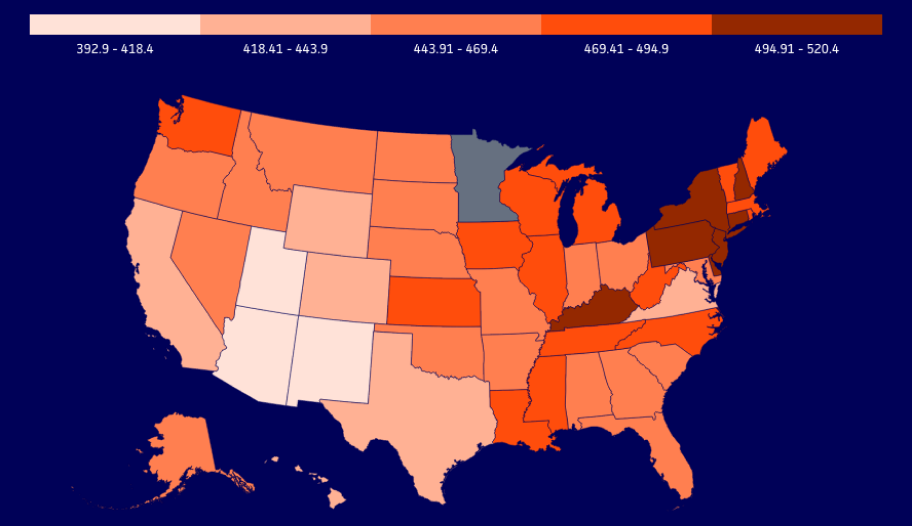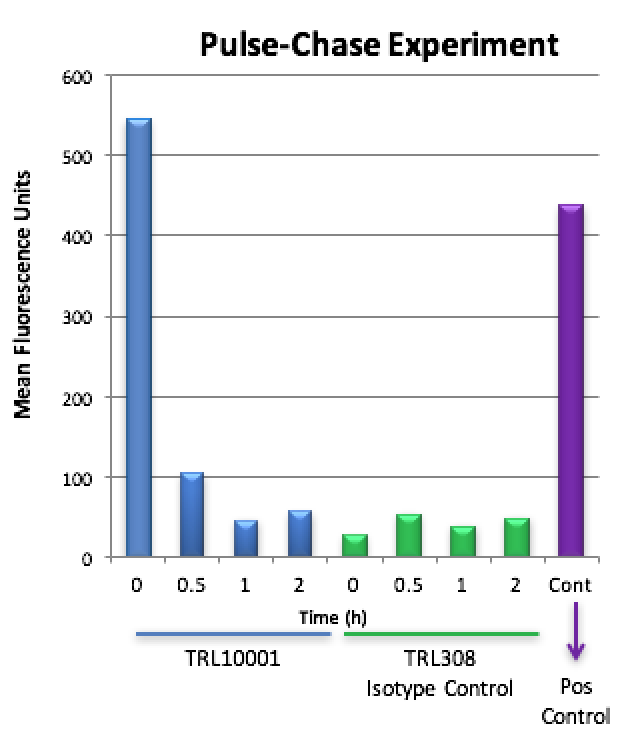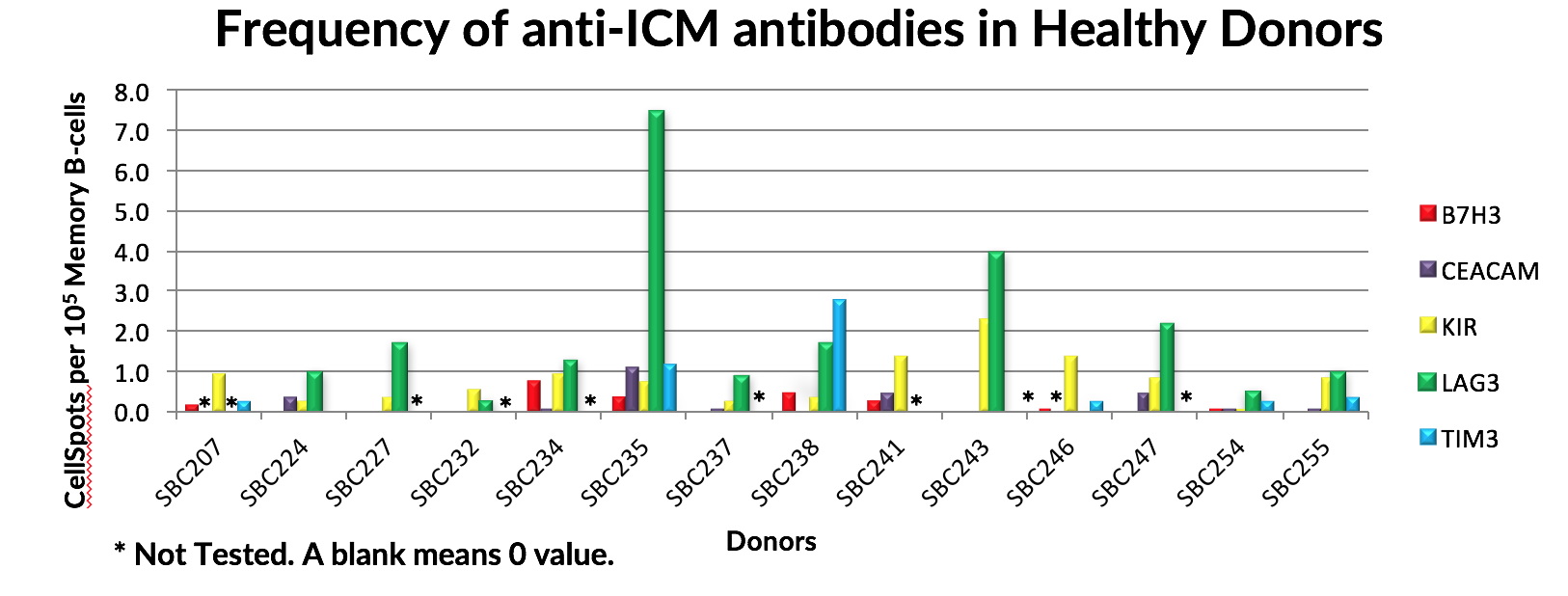Oncology Antibody Candidates
These monoclonal antibodies are licensed to Relevant Biosciences (www.relevantbio.com)
Trellis’ cancer monoclonal antibodies follow in the footsteps of recent
scientific advances made towards targeted approaches against tumors, via antibodies targeting well-characterized
tumor-associated antigens and immune checkpoint modulators. Trellis is the first company to characterize anti-ICM antibodies
naturally present in healthy immune systems.
Cancer
Immune Checkpoint Modulators (ICMs) and Tumor-Associated Antigens (TAAs)
Cancer is the second most common cause of death in the United States, accounting for nearly 1 in 4 deaths, 595,000 deaths estimated in 2016 (American Cancer Society).
Most Lethal Types:
- Lung and bronchial
- Colorectal
- Pancreatic
- Breast
- Liver and intrahepatic bile duct
- Prostate


Trellis antibodies fight cancer through two methods:
Immune Checkpoint Modulators (ICMs)


CellSpot identified optimal mAb, TRL8605 (green curve),
with greatest binding affinity to KIR2DL3 extracellular domain.
Tumor-Associated Antigens (TAAs)


In vitro pulse-chase experiment:
Trellis anti-ALK mAb, TRL10001, bound to ALK-expressing cells
and was internalized within 30 minutes.

Frequencies of memory B-cells specific for ICMs are very low (single digits per 105 B-cells) but Trellis has found and cloned high affinity antibodies to several ICMs: KIR, TIM-3 B7-H3, LAG-3 and CEACAM1:
